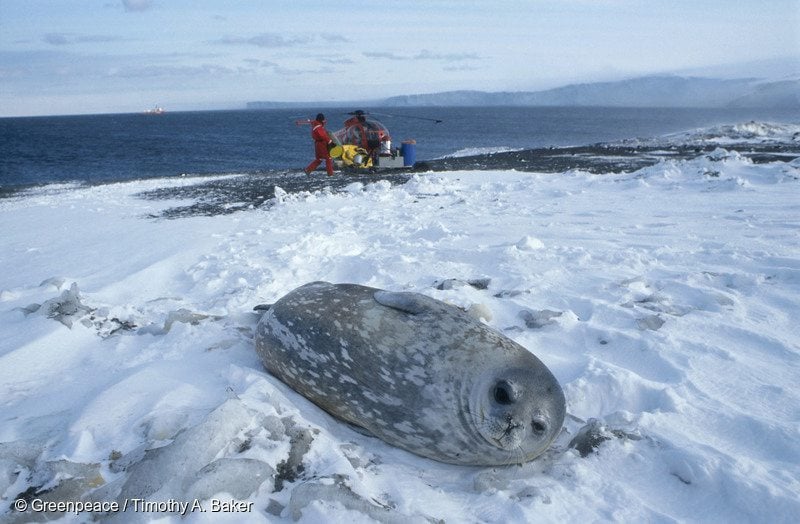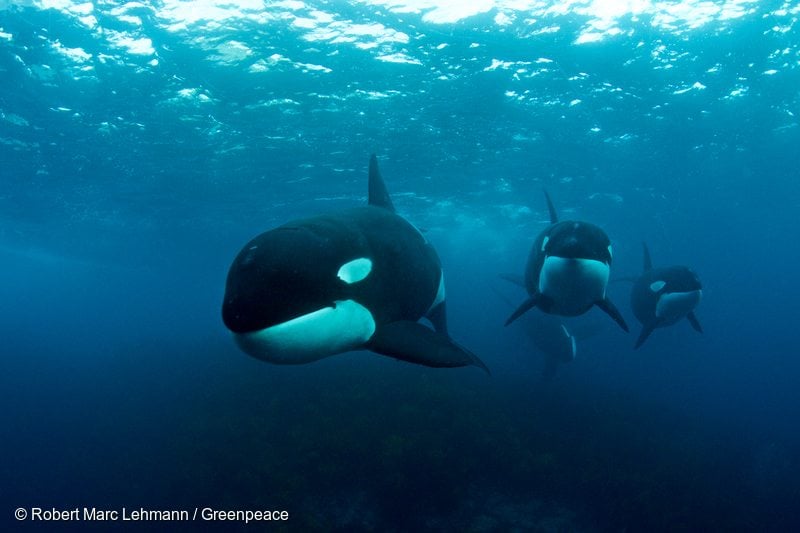It’s alive! Today, the largest ocean sanctuary in the world was born in the Ross Sea, off the coast of Antarctica. This is a huge victory for the whales, penguins, and toothfish that live there and for the millions of people standing up to protect our oceans.
Known as the Last Ocean, the Ross Sea has been identified by scientists as the most pristine shallow ocean left on earth. It’s gorgeous, but I was starting to wonder if it would ever be protected..
For years, I served as part of the U.S. government delegation to CCAMLR, the international body responsible for stewardship of Antarctic waters. Each year, I would pack up my suits and head to Tasmania for two weeks of negotiations, thinking that this was the year we were finally going to make it happen. But year after year, there was always something blocking progress. But this year, all of CCAMLR’s members finally agreed — it’s time to make the Ross Sea a protected sanctuary!
The Ross Sea sanctuary will now be the biggest marine protected area in the world, covering 1,550,000 square kilometers (which is roughly the size of three Texases, two Spains, or one Mongolia), almost three-quarters of which will be a fully-protected.
MAP: This is where the world’s newest—and largest—marine protected area is. https://t.co/PXxXnuW6H4 #CCAMLR pic.twitter.com/8qjaQm2xKB
— Pew Environment (@pewenvironment) October 28, 2016
And this is just the latests movement in a huge year for ocean sanctuaties.
The Ross Sea win comes on the heels of President Obama’s decision to expand the Papahanaumokuakea National Marine Monument, making it — until now — the world’s largest sanctuary.
Just days before that, Obama also made history by establishing the first National Marine Monument in the Atlantic, protecting canyons and seamounts.
Obama’s Secretary of State, John Kerry, has played an important role, particularly as the driving force behind the Our Ocean summits, which have prompted hundreds of new initiatives around the world.

The Ross Sea is home to 45 percent of the Southern Pacific population of Weddell seals. And now it will be an ocean sanctuary!
As big as these new sanctuaries are, the ocean is bigger still. Despite a pledge at the World Conservation Congress this summer to protect 30 percent of our oceans by 2030, we have a long way to go in order to meet that target — and Greenpeace is pushing for still more, with a goal of setting aside 40 percent of our oceans as fully protected sanctuaries.
The science is clear that ocean sanctuaries are vital to protecting biodiversity, rebuilding fish populations, and increasing resilience to climate change. Unfortunately, long battles like the one that led to this victory for the Ross Sea require more than just good science — they need millions of people speaking up for our oceans. Without your voices, the best scientific case in the world is rarely enough to stand up against the short term interests of the vocal and organized commercial fishing lobby.
In this case we had enough people power to win protections for the Ross Sea, but not enough to make it permanent – so we will need to make sure that it is in 35 years when this sanctuary comes up for renewal.

The Ross Sea is also home to orcas, emperor penguins, petrels and much, much more. And now it will become and ocean sanctuary!
Thank you all for your part in this victory. Together, we can keep the momentum building and ensure that we will have healthy oceans long into the future. Show your support for sanctuaries by signing this petition and we will make sure your voice is heard. Let’s make this the decade of ocean protection!
John Hocevar is a marine biologist and the director of Greenpeace USA’s oceans campaign.
